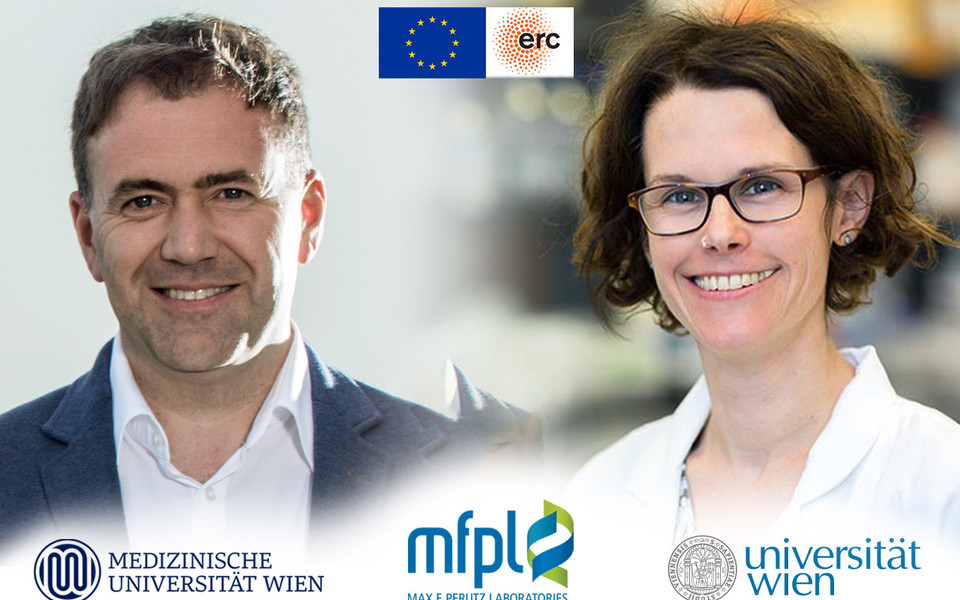
Claudine’s project focuses on the cell’s own waste disposal system, called autophagy. The group wishes to understand how this process works, as defects have been associated with different human diseases such as cancer and neurodegenerative disorders. Specifically, they will focus on how the cell’s waste bags, called autophagosomes, are formed, and how they are transported to the incinerators, the vacuoles or lysosomes. This will allow for a better understanding of the process and hopefully, novel therapies for the future. A Swiss native, Claudine joined the MFPL as a group leader in 2011, after completing her postdoctoral studies at ETH Zürich. In November 2017, Claudine started a research group at the University of Freiburg. She will retain her group in Vienna until the end of 2018.
An MFPL group leader since 2010, Alwin’s main research interest lies in exploring nuclear pore complexes (NPCs), the molecular gates that control all traffic in and out of the nucleus. Beyond transporting cargo, NPCs have fascinating additional roles such as the regulation of gene expression and the shaping of the nuclear membrane, which protects the genome. As a result of these essential functions, NPCs are implicated in a vast number of human diseases and under intense investigation in basic and applied research. The ERC Consolidator Grant will allow his group to undertake a challenging new research project on the nuclear pore “basket”, a large structure that is appended to the NPC core. The basket has been implicated in the regulation of molecular transport, decoding of DNA and DNA repair, membrane remodelling and other vital processes, however, it is still very poorly understood compared to the rest of the NPC. “Our goal is to biochemically reconstruct the NPC basket from its individual components. This engineering approach can be described as: scientific learning through building. We expect to discover the fundamental design principles of the NPC and how its structure is linked to normal function and disease,” explains Alwin.
With these two ERC Consolidator Grants, the total number of ERC grants obtained by MFPL scientists amount to nine. This once again highlights the high quality of research carried out at the institute and the Vienna BioCenter.